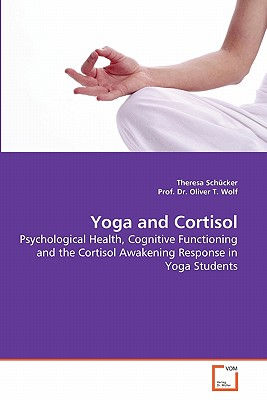Morning Anxiety madness
- Lætitia

- Sep 26, 2023
- 5 min read
Updated: Jun 13, 2025

Anxiety levels can vary throughout the day for different individuals, and experiencing a peak of anxiety in the morning is not uncommon.
Several factors contribute to this morning peak in anxiety for anxious people.
Daddy, I don't want to go to school. Please let me stay in, promised I'll be good Don't force me to go there daddy pleeaase !
Does that song rigs a bell ? Have you heard that before ? Was it your song maybe?
Cortisol Levels

Cortisol is a hormone associated with the body's stress response. For individuals with anxiety disorders, this increase in cortisol can trigger or exacerbate feelings of anxiety.
The cortisol awakening response (CAR) is a natural and well-documented physiological phenomenon that involves a sharp increase in cortisol levels within the first hour of waking up in the morning. Cortisol is a hormone produced by the adrenal glands and is a key component of the body's stress response system, often referred to as the "stress hormone."

The CAR typically follows a specific pattern:
Wake-Up: Upon waking up, cortisol levels begin to rise rapidly within the first 30 minutes to an hour.
Peak: The cortisol levels typically peak around 30-45 minutes after waking, making this period the time of the highest cortisol concentration during the day for most individuals.
Decline: After reaching its peak, cortisol levels gradually decline over the course of the morning, stabilizing as the day progresses.
This surge in cortisol levels upon waking is thought to help prepare the body and mind for the demands of the day. It aids in mobilizing energy reserves, increasing alertness, and supporting cognitive and physical functioning.
As cortisol levels fall, melatonin levels will begin to rise. Melatonin is a hormone that promotes sleep. It naturally produces as the sun goes down and increases as it gets darker.
The adrenal glands

The adrenal glands are small, triangular-shaped glands that sit on top of your kidneys. The adrenal glands secrete several hormones regulating stress response, blood pressure, immune function, metabolism, and sexual characteristics.
Signs of an Unbalanced Cortisol Awakening Response
You are very energetic in the morning but crash later in the day.
It takes several cups of coffee to get you to feel awake.
You have a chronic disease, stress, or inflammation.
You have thyroid dysfunction or a history of traumatic brain injury.

What the Cortisol Awakening Response Impacts
Energy levels
Stress response/resilience
Mood
Memory and recall
Stress levels
Alertness
Infection regulation
Autoimmune development/progression
Blood sugar management
Inflammation regulation
Cancer outcomes
A normal CAR will cause you to naturally feel awake in the morning, energized throughout the day, and tired as night approaches. If your CAR is too low or too high, it can cause various symptoms such as fatigue, burnout, low libido, low motivation, anxiety, depression, insomnia, brain fog, and/or inflammation.
The CAR is influenced by various factors, including:
Diurnal Rhythm: Cortisol follows a diurnal rhythm, meaning its levels naturally fluctuate throughout the day in a predictable pattern. The highest levels are typically in the early morning, and they gradually decrease as the day progresses.
Anticipatory Stress: Anticipation of daily stressors, responsibilities, or tasks can trigger the cortisol awakening response. This means that if an individual expects a stressful day, their cortisol levels upon waking might show a more pronounced increase.
Sleep Quality and Duration: Cortisol awakening response can be affected by the quality and duration of sleep. Insufficient or poor-quality sleep can alter the pattern and magnitude of the cortisol surge upon waking.
Understanding the cortisol awakening response is important in studying stress responses, the body's natural rhythms, and how these factors may influence mental and physical health. Cortisol awakening response is a normal physiological process, prolonged or chronic elevation of cortisol levels (as seen in chronic stress) can have adverse effects on health, including disruptions in the body's regulatory systems and potential long-term health issues.
Rumination and Overthinking

Anxiety often leads to excessive worry and overthinking, particularly during the quiet and undistracted moments in the morning. When waking up, the mind can quickly race through concerns and worries, leading to increased anxiety through various cognitive and emotional processes.
Excessive Worry: Rumination involves repetitively thinking about distressing thoughts, problems, or situations without reaching a resolution. Overthinkers often engage in a cycle of worry, which can intensify during periods of quiet, such as upon waking in the morning. This prolonged worry can escalate anxiety levels.
Anticipation of the Day: Upon waking, individuals often begin planning and anticipating the day's events. For individuals prone to overthinking, this planning process may involve excessive consideration of potential problems, difficulties, or negative outcomes, heightening anxiety about what lies ahead.
Negative Thought Patterns: Overthinkers tend to engage in negative thought patterns, such as catastrophizing (assuming the worst will happen), personalization (assuming everything is their fault), or black-and-white thinking (seeing situations in extremes). These patterns can be especially prevalent in the morning, amplifying anxiety.
Mindfulness of Anxiety: As individuals transition from sleep to wakefulness, they may become more aware of their thoughts and bodily sensations. For those experiencing anxiety, this awareness can lead to a sudden surge in anxious thoughts and physical symptoms, intensifying the anxiety felt upon awakening.
Rapid Thought Escalation: Overthinking can escalate rapidly, with one negative thought leading to another and then another. This cognitive cascade can occur swiftly upon waking, leaving the individual feeling overwhelmed and anxious.
Lack of Distraction: During the morning, the environment is often quieter and less stimulating than during the day. For chronic overthinkers, this lack of distraction can provide an opportunity for anxious thoughts to become more pronounced and harder to ignore.
Sleep Quality Impact: The quality of sleep can influence the nature and intensity of thoughts upon waking. If the sleep has been disturbed or of poor quality, it can contribute to a heightened state of anxiety upon arising.
Stressful Life Events: If an individual is going through a particularly stressful period in their life, these stressors can dominate their thoughts, and upon waking, they may immediately be reminded of these stressors, causing a spike in anxiety.
To manage this morning anxiety driven by rumination and overthinking, individuals can benefit from implementing strategies such as mindfulness practices, relaxation techniques, cognitive-behavioral therapy (CBT) to address thought patterns, modeling or journaling to organize thoughts, regular exercise, and a consistent and restorative sleep routine. Seeking support from your trusty life coach can also provide effective coping strategies to manage excessive worrying and anxiety.
Anticipation of the Day Ahead
For those with anxiety, the anticipation of the day's events and potential stressors can cause anxiety levels to rise in the morning. This is especially true if the day is perceived as challenging or overwhelming.
REM Sleep and Dreams
Rapid Eye Movement (REM) sleep, which typically occurs in the early morning hours, is associated with vivid dreams. Dreams can sometimes be unsettling or anxiety-provoking, causing a spike in anxiety upon waking.
Morning Routine and Responsibilities
Morning routines can be stressful, especially if there are various responsibilities or tasks to manage at the start of the day. This rush to get organized and face the day's demands can contribute to heightened anxiety levels.

Sensitivity to Sensations
Some individuals with anxiety disorders are more sensitive to bodily sensations. Upon waking, sensations like increased heart rate, shallow breathing, or muscle tension may be noticed more acutely, leading to heightened anxiety.
Lack of Sleep
Insufficient or poor-quality sleep can significantly impact anxiety levels. If an anxious individual has experienced disrupted sleep or nightmares during the night, they may wake up feeling more anxious.
It's essential to understand that anxiety is a complex and multifaceted condition, and the reasons for morning anxiety can vary from person to person. Effective management strategies, including relaxation techniques, cognitive-behavioral approaches, regular exercise, and a healthy sleep routine, can help mitigate morning anxiety and its impact on overall well-being. If morning anxiety persists or significantly interferes with daily functioning, contact me for personalized support and guidance.




Comments